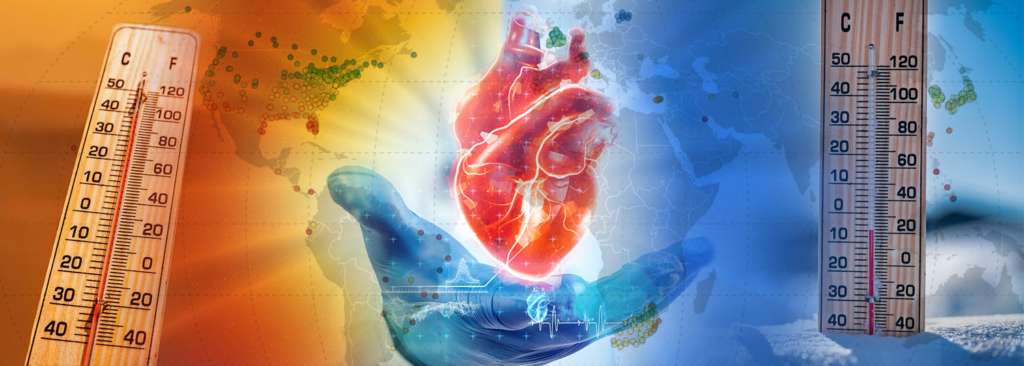As temperatures rise during the summer months, it’s important to be aware of the potential impact of heat on our health, especially when it comes to heart health. The relationship between heat and heart attacks is a critical topic that deserves attention and understanding. Let’s delve into how heat can influence heart health and what steps we can take to protect ourselves.

The Heat-Heart Attack Link
Heat places added stress on the cardiovascular system, which can increase the risk of heart-related issues, including heart attacks. Several key factors contribute to this risk:
- Dehydration: High temperatures can lead to increased fluid loss through sweating, potentially causing dehydration. Dehydration reduces blood volume, making the heart work harder to circulate blood throughout the body. This added strain can be particularly dangerous for individuals with existing heart conditions.
- Blood Vessel Dilation: In response to heat, blood vessels in the skin dilate (widen) to help dissipate heat from the body. This dilation can lead to a drop in blood pressure, which may be problematic for those with underlying cardiovascular issues.
- Increased Heart Rate: The body’s natural response to heat is an increase in heart rate. This elevated heart rate is the heart’s attempt to pump more blood to the skin to facilitate cooling. However, for individuals with compromised heart function, this increased workload can trigger or exacerbate heart problems.
- Electrolyte Imbalance: Sweating excessively due to heat can lead to an imbalance in electrolytes such as sodium and potassium, which are crucial for proper heart function. These imbalances can potentially disrupt normal heart rhythm and increase the risk of cardiac events.

Tips for Protecting Your Heart in the Heat
Given these risks, it’s essential to take proactive steps to safeguard your heart during hot weather:
- Stay Hydrated: Drink plenty of water throughout the day, especially when temperatures are high and if you’re engaging in outdoor activities.
- Avoid Extreme Heat: Try to stay indoors during the hottest part of the day (usually midday to late afternoon) and limit strenuous activities during peak heat hours.
- Dress Appropriately: Wear lightweight, loose-fitting clothing in light colors to help regulate body temperature.
- Use Air Conditioning or Fans: Keep your living space cool using air conditioning or fans to prevent overheating.
- Take It Easy: Avoid overexertion, especially if you’re not accustomed to physical activity in hot conditions.
- Know the Warning Signs: Be aware of the symptoms of heat-related illnesses and heart issues. Seek medical attention immediately if you experience chest pain, shortness of breath, dizziness, or nausea.
- Check on Vulnerable Individuals: Keep an eye on elderly family members, young children, and those with pre-existing heart conditions during hot weather.
Conclusion
Heat can indeed pose a serious threat to heart health, particularly for individuals with underlying cardiovascular conditions. By taking preventive measures and staying vigilant, we can reduce the risk of heat-related heart problems and enjoy a safe and healthy summer season. Remember, it’s always better to err on the side of caution when it comes to protecting our hearts from the heat.

